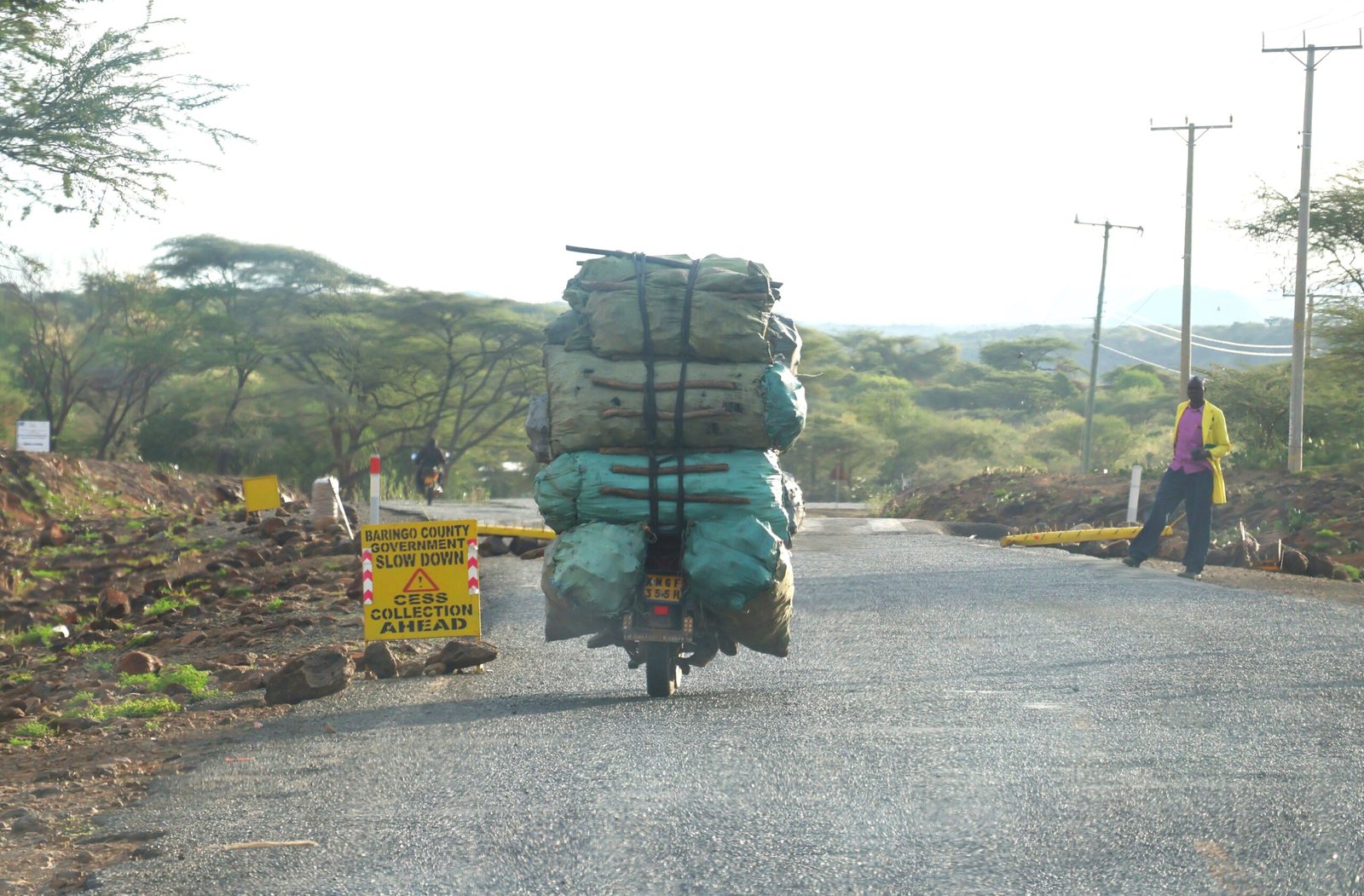Dilemma over balance between environmental conservation and livelihoods in Baringo

As the world marks the #InternationalDayforCleanEnergy, there is a pressing need to raise awareness on the impact of fossil fuels on climate change. Communities round the world engage in activities that have threatened production of clean energy through increase reliance on fossil fuels, contributing to environmental degradation, water and air pollution, waste mismanagement and deforestation.
In Baringo county for instance, residents have made charcoal production into the primary economic activity along Baringo South sub-county. The charcoal produced here is not only consumed locally, but also across ten other counties including the capital city of Kenya, Nairobi County, making the venture a lucrative business and highly profitable.
Described as the best in the market, the famous Baringo charcoal is made from cutting and burning down of a tree species known as Prosopis Julifora (locally known as the Mathenge tree). It is reported by the locals that the Mathenge tree has detrimental effects on the environment and their livestock and hence needs to be disregarded. This naturally occurring tree, which flourishes all year round, including the dry seasons ensures the locals stay in business.
The booming charcoal business has resulted in a rapid increase in deforestation in the county to meet the growing demand for charcoal around the country. With a 30% increase in cooking gas prices since 2022, residents are turning back to using charcoal as a more affordable source of fuel, further escalating the demand.
Baringo County has suffered severe effects of climate change and weather variability. Climate change continues to pose a challenge to livelihoods as there are droughts, floods, intense rains, erratic rainfall, high temperatures and variations of water levels in Lake Baringo being experienced. Drought and erratic rains cause low productivity in crop and livestock production, crop failure and livestock deaths as well as increasing time spent in the field and distance travelled to find water and pasture for livestock.
A study on Gender Dimensions of Climate Security and Adaptation in the Context of Resilience, Peace and Stability[1] indicated that “competition over natural resources, food and water for both household use and livestock were most linked to the insecurity incidents. Marked decreases in water availability and quality, energy, and land productivity as well as marked increases in people and animal relocations were also contributing factors to the insecurity incidents but to a lesser extent.
Government statistics indicate that the persistent use of non-renewable energy intensifies the adverse effects of climate change. In the recent past, deforestation in the county has led to prolonged droughts, flash floods during wet seasons, loss of livestock and soil erosion. Charcoal burning has resulted in the destruction of indigenous trees and plants, leaving the soil bare and susceptible to erosion.
MIDRIFT HURINET through the Resilience, Peace and Stability project #RPS aims to promote sustainable management of land and forests towards climate change mitigation and adaptation through the adoption of clean energy, modern agricultural practices, water harvesting and environmental conservation efforts to reduce natural resource the conflicts in Baringo County. Clean energy is energy that comes from renewable sources that have zero emissions and do not contribute to pollution when used. In its intervention, the project aims to create awareness on different forms of clean energy available need to be done in Baringo to enhance community knowledge and discourage charcoal burning.
The Baringo County Government can also support projects by at risk groups (youth, women, PWDs) to engage in clean energy projects such as briquettes, solar cookers, biogas etc. that aim to reduce dependence on fossil fuels and invest in alternative sources of energy that are clean, accessible, affordable, sustainable, and reliable. This will in-turn promote the achievement of Sustainable Development goal 7: Ensure access to affordable, reliable, sustainable and modern energy for all.
[1] Dr. Elizabeth Ngumbi, “Study on gender dimensions of climate security and adaptation in the context of resilience, peace, and stability in Kenya”, 2023 (Act!)

